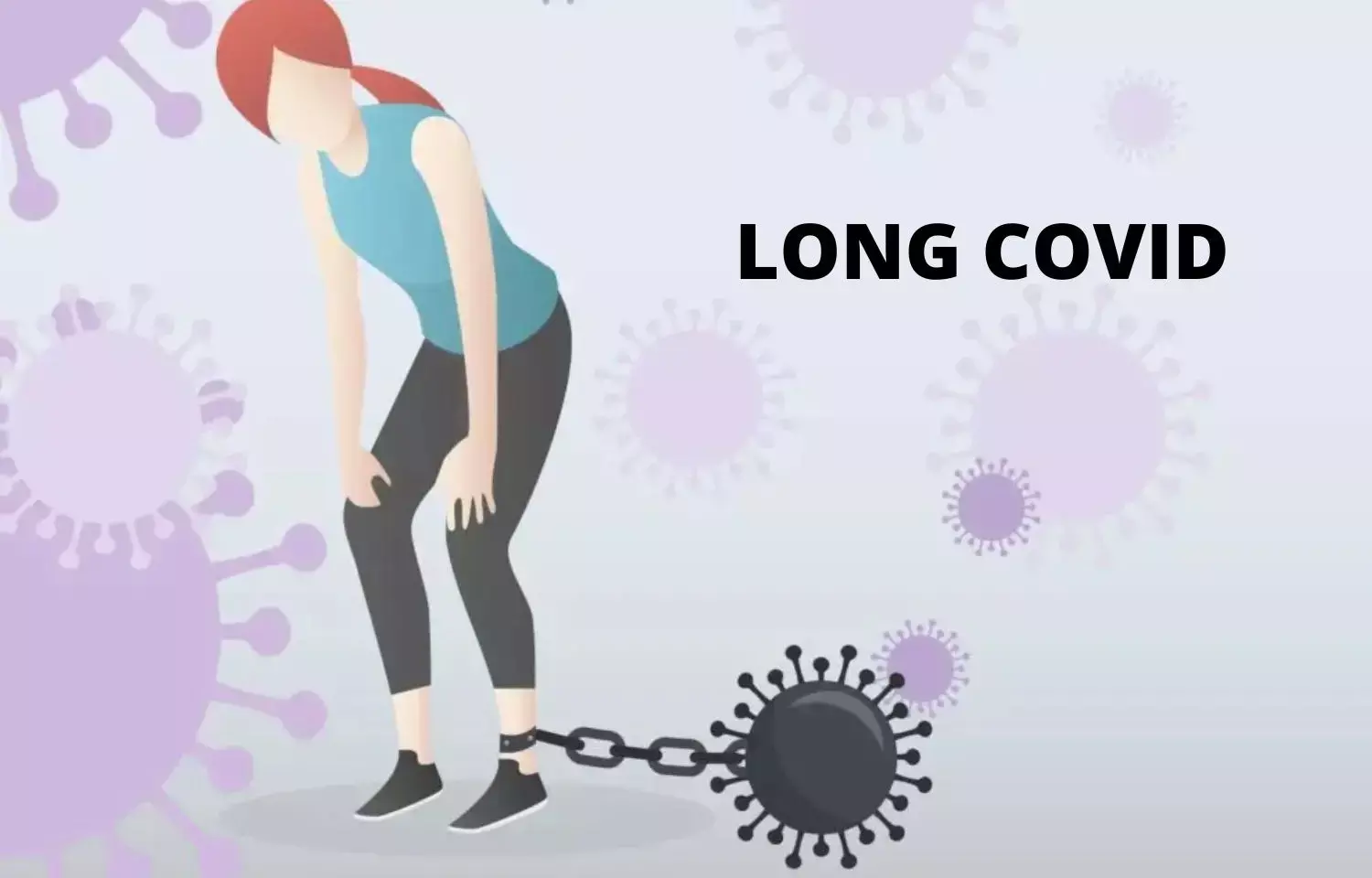- Home
- Medical news & Guidelines
- Anesthesiology
- Cardiology and CTVS
- Critical Care
- Dentistry
- Dermatology
- Diabetes and Endocrinology
- ENT
- Gastroenterology
- Medicine
- Nephrology
- Neurology
- Obstretics-Gynaecology
- Oncology
- Ophthalmology
- Orthopaedics
- Pediatrics-Neonatology
- Psychiatry
- Pulmonology
- Radiology
- Surgery
- Urology
- Laboratory Medicine
- Diet
- Nursing
- Paramedical
- Physiotherapy
- Health news
- Fact Check
- Bone Health Fact Check
- Brain Health Fact Check
- Cancer Related Fact Check
- Child Care Fact Check
- Dental and oral health fact check
- Diabetes and metabolic health fact check
- Diet and Nutrition Fact Check
- Eye and ENT Care Fact Check
- Fitness fact check
- Gut health fact check
- Heart health fact check
- Kidney health fact check
- Medical education fact check
- Men's health fact check
- Respiratory fact check
- Skin and hair care fact check
- Vaccine and Immunization fact check
- Women's health fact check
- AYUSH
- State News
- Andaman and Nicobar Islands
- Andhra Pradesh
- Arunachal Pradesh
- Assam
- Bihar
- Chandigarh
- Chattisgarh
- Dadra and Nagar Haveli
- Daman and Diu
- Delhi
- Goa
- Gujarat
- Haryana
- Himachal Pradesh
- Jammu & Kashmir
- Jharkhand
- Karnataka
- Kerala
- Ladakh
- Lakshadweep
- Madhya Pradesh
- Maharashtra
- Manipur
- Meghalaya
- Mizoram
- Nagaland
- Odisha
- Puducherry
- Punjab
- Rajasthan
- Sikkim
- Tamil Nadu
- Telangana
- Tripura
- Uttar Pradesh
- Uttrakhand
- West Bengal
- Medical Education
- Industry
Long COVID-19 symptoms similar in hospitalized and nonhospitalized patients 2 years after infection: JAMA

SPAIN: The COVID-19 virus has altered the course of history during the past two years. Further most significant observation is the emergence or persistence of symptoms after the acute phase of SARS-CoV-2 infection which is called long COVID1 or post–COVID-19.
Researchers have found in a new study that Long COVID-19 symptoms were similar in hospitalized and nonhospitalized patients 2 years after infection. Further since post-COVID-19 symptoms were the same in hospitalized and non-hospitalized patients suggests that these sequelae should be taken seriously among all COVID-19 patients.
The study has been published in JAMA Network Open.
"In recent research, follow-up intervals of up to 6 months after acute infection were included in direct comparisons of hospitalized vs. nonhospitalized individuals. There is still a shortage of data for follow-up periods longer than a year following SARS-CoV-2 infection "said a team led by Cesar Fernández-de-las-Peas.
Therefore, the primary goal of this study was to examine the presence of post-COVID-19 symptoms at a 2-year follow-up between patients who were hospitalized and those who were not. Finding possible risk factors in both hospitalized and outpatient COVID-19 patients for the emergence of post-COVID-19 symptoms two years after acute infection was the secondary goal.
for this purpose, Between March 20 and April 30, 2020, 360 hospitalized patients and 308 non-hospitalized patients with acute SARS-CoV-2 infection participated in a cross-sectional cohort research at two urban hospitals and general practice clinics. A follow-up was done after two years. A telephone interview with the participants was planned for 2 years following the acute infection. Systematically evaluating the occurrence of post-COVID-19 symptoms was done with a focus on symptoms that appeared after infection. Medical records were mined for information on hospitalization and clinical outcomes. Researchers performed multivariate logistic regressions and between-group comparisons.
Key highlights of the research:
- Anosmia was more common among non-hospitalized patients than hospitalized patients (66 [21.4%] vs 36 [10.0%]; P =.003), but dyspnea was more common among hospitalized patients than non-hospitalized patients (112 [31.1%] vs 36 [11.7%]; P <.001).
- Patients who were hospitalized were evaluated at a mean (SD) of 23.8 (0.6) months following hospital discharge, while patients who were not hospitalized were evaluated at a mean (SD) of 23.4 (0.7) months following the onset of symptoms.
- At least 1 post-COVID-19 symptom was present in 215 (59.7%) of hospitalized patients and 208 (67.5%) of non-hospitalized patients two years after infection (P =.01).
- The three most common post-COVID-19 symptoms, 2 years after SARS-CoV-2 infection, were fatigue (161 [44.7%] vs 147 [47.7%], pain (129 [35.8%] vs 92 [29.9%], and memory loss (72 [20.0%] vs 49 [15.9%].
- There were no discernible variations in post-COVID-19 symptoms between hospitalized and outpatient individuals.
- Post-COVID-19 fatigue and dyspnea among hospitalized patients were also correlated with the number of comorbid medical conditions (odds ratio [OR], 1.93; 95% CI, 1.09-3.42; P =.02).
- Post-COVID-19 fatigue among non-hospitalized patients was linked with the number of preexisting medical comorbidities (OR, 3.75; 95% CI, 1.67-8.42; P =.001) and the number of symptoms at the time of illness (OR, 3.84; 95% CI, 1.33-11.05; P =.01).
Although post-COVID-19 symptoms were comparable in hospitalized and non-hospitalized patients, it is difficult to determine whether SARS-CoV-2 infection is linked to both general and particular post-COVID-19 symptoms two years after acute infection due to the exclusion of uninfected controls. Virus-free control populations should be used in future investigations, concluded the authors.
Regardless of whether the patient has been hospitalized or not, the latest research suggests that long-term COVID will need special management care.
REFERENCE
Fernández-de-las-Peñas C, Rodríguez-Jiménez J, Cancela-Cilleruelo I, et al. Post–COVID-19 Symptoms 2 Years After SARS-CoV-2 Infection Among Hospitalized vs Nonhospitalized Patients. JAMA Netw Open. 2022;5(11):e2242106. doi:10.1001/jamanetworkopen.2022.42106
Dr Kamal Kant Kohli-MBBS, DTCD- a chest specialist with more than 30 years of practice and a flair for writing clinical articles, Dr Kamal Kant Kohli joined Medical Dialogues as a Chief Editor of Medical News. Besides writing articles, as an editor, he proofreads and verifies all the medical content published on Medical Dialogues including those coming from journals, studies,medical conferences,guidelines etc. Email: drkohli@medicaldialogues.in. Contact no. 011-43720751


